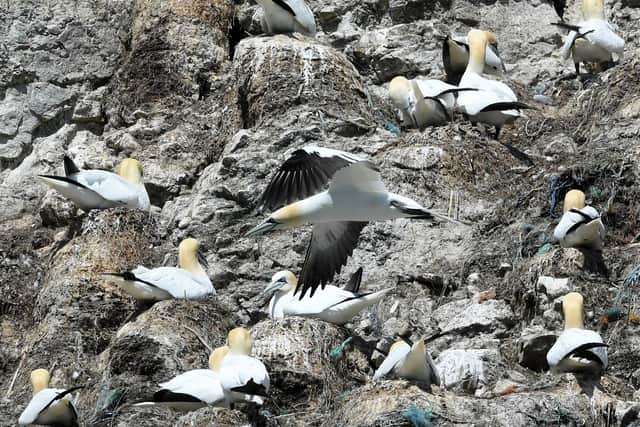RSPB Bempton Cliffs near Bridlington are on high alert after an outbreak of avian flu across the UK kills thousands of birds
and live on Freeview channel 276
Black-headed gulls and common terns have been particularly hard hit by the recent spread of the disease.
The recent spread of bird flu among threatened gulls and terns is gathering pace, experts from the British Trust for Ornithology (BTO) said.
Advertisement
Hide AdAdvertisement
Hide AdRichard Barnard, RSPB area manager, said: “Avian influenza is sadly still affecting wild and domestic bird populations, causing distressing scenes across our countryside.


“Last year, we saw the devastating impacts of avian influenza and thousands of seabirds were reported dead across the country.
“Whilst we have not confirmed any avian influenza cases at Bempton Cliffs yet this year, it is still too early in the season to rule this out and our staff continue to be vigilant, monitoring the colonies carefully and doing counts of the seabird colonies.
"The RSPB is urging the Government to respond to this crisis with the true urgency needed as scenes like this are not only distressing but continue to be of concern as the UK’s worst outbreak takes hold yet again across the country.”
Advertisement
Hide AdAdvertisement
Hide AdBlack-headed gull mortalities from suspected avian influenza have more than doubled in the past month.
At least 10,000 black-headed gulls, 4% of the total UK population, are feared to have died since the end of March. Hundreds of common terns have also died, with signs of severe losses for this species still to come.
BTO researchers want members of the public to help track the spread of avian influenza by reporting all dead birds through both the BirdTrack app and to the Department for Environment, Food and Rural Affairs.
Professor James Pearce-Higgins, BTO Director of Science, said: “The spread of avian influenza through inland breeding colonies of black-headed gulls and common terns is continuing.
Advertisement
Hide AdAdvertisement
Hide Ad"It represents the next phase of the battle against this virus that devastated so many of our coastal and offshore seabird colonies last year."
Go to www.bto.org/understanding-birds/avian-influenza to find out more.